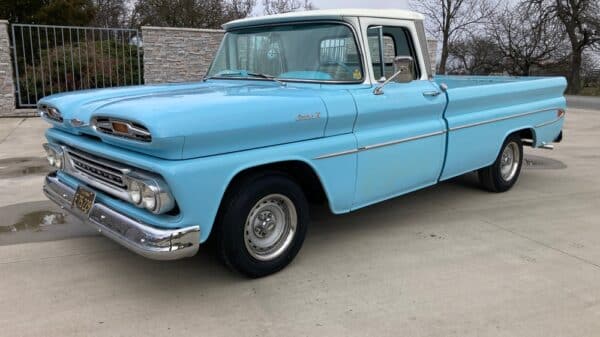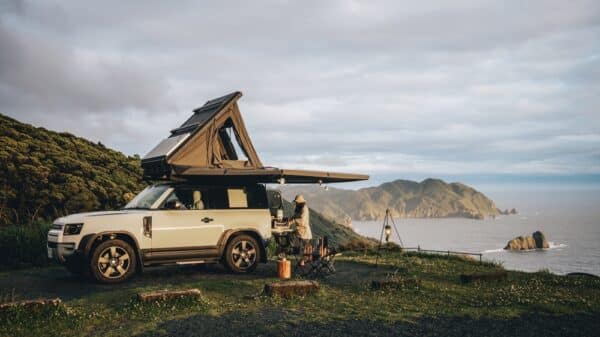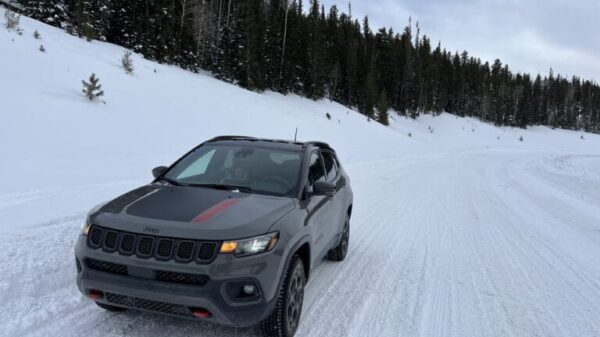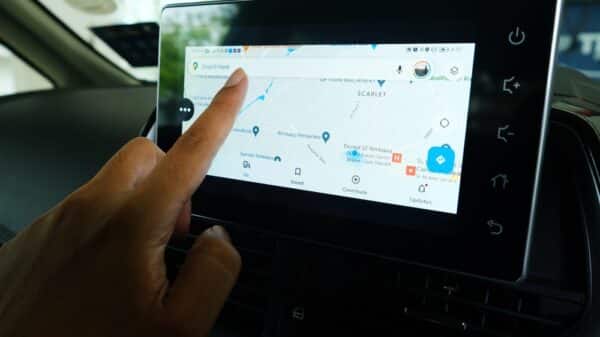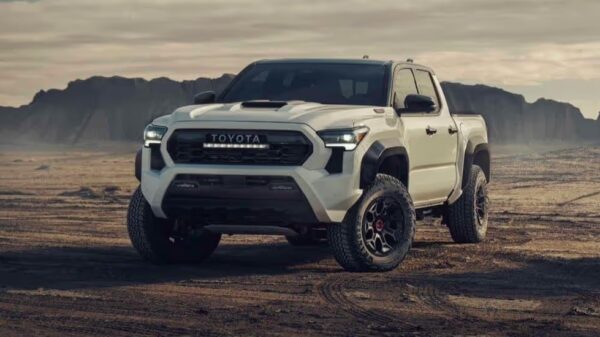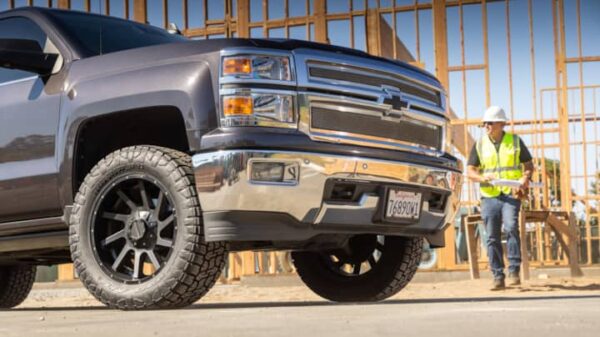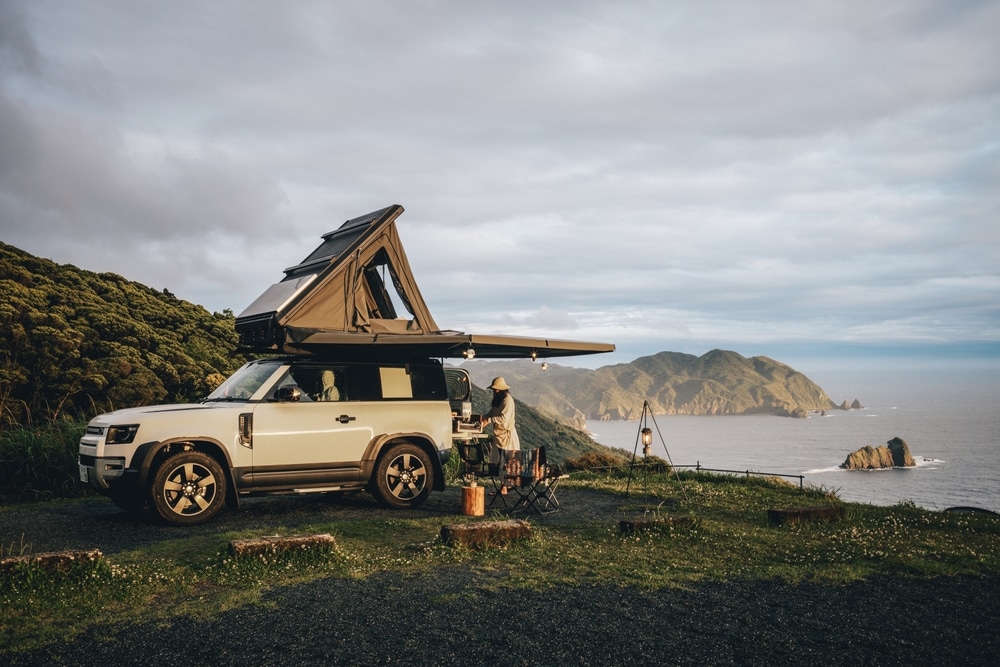There are numerous various facets of overland exploration that make it exceptionally attractive, from escaping traffic and the city sprawl to reaching stunning locations and discovering new areas. However, certain factors can spoil your own adventure, and there are also actions you might take that could diminish the experience for others.
Keep in mind, just because you enjoy blasting Taylor Swift at full volume or arriving at camp at midnight with all your LED lights illuminated, doesn’t imply that everyone else will welcome it. Adhere to the Golden Rule of “Treat others as you wish to be treated” when you are overlanding. Here are ten suggestions to guarantee your next expedition unfolds precisely as intended.
10. Bring Sufficient Fuel
Before venturing into unfamiliar terrain, have an understanding of the size of your fuel tank and your usual mileage to ascertain your vehicle’s range. It’s typical to journey hundreds of miles between fuel stops when overlanding, so examine your route to find out how far it will be between gas stations, and if necessary, carry extra fuel.
Be sure to avoid transporting fuel inside an SUV or the cab of a truck. Ideally, fuel containers should be securely fastened in the bed (or spare tire rack) and kept away from direct sunlight as much as possible.
9. Stay Hydrated
Running out of food can dampen your trip, but depleting your water supply can be potentially fatal, especially in desert environments. We suggest carrying at least one gallon of drinking water per person, for each day. Generally, it conserves space to bring one, two, or five-gallon water containers and refill your water bottle rather than individual plastic bottles.
Dometic’s GO Hydration Faucet is our personal favorite. Consider additional water for purposes like washing and cleaning tableware as well.
8. Bury Your Waste
As the adage goes, “everyone poops,” but there aren’t always restrooms in remote areas. Human waste has led to closures at popular sites like Alabama Hills, so plan to bring Waste Alleviation and Gelling (WAG) Bags (https://cleanwaste.com/product/the-original-wag-bag/) or an equivalent product to remove what you bring in.
If you are heading to more secluded places, burying your waste may also be an option. Just remember to excavate a hole that is at least six inches deep and at least 200 feet from any water source, and place your toilet paper in a Ziploc bag to discard in the trash upon your return home.
7. Maintain Your Charge
Common overland gear like freezer fridges, LED light bars, and HAM radios all consume a substantial amount of electricity. When your vehicle is operational, the alternator can typically manage these demands, but if you leave your lights on while setting up camp at night or have your fridge operating for days in the desert, it can deplete your battery.
Installing dual batteries with an isolator to keep the starting battery charged is a worthwhile and cost-effective improvement. Carrying a lithium jump box is another smart suggestion; these can even be utilized to recharge your phone and other gadgets while in the wilderness.
6. Flat Tire
One of the surest ways to ensure you are setting up camp after dark is to have to replace a tire on the trail. As we add rooftop tents, winches, bumpers, and other hefty equipment, our tires must be rated to accommodate the added weight. Additionally, they must be adequately inflated for highway speeds to ensure they don’t overheat and de-laminate due to excessive rolling resistance.
On different terrains, we advise reducing your tire pressure by half to allow the tire to adjust to the ground. So, if you typically operate at 40 psi on the pavement, you can reduce it to 20 psi. Keep in mind that the tread is the most robust part of the tire, while the sidewall is the most susceptible. If you can steer clear of rubbing or colliding with sharp objects, you significantly increase your odds of preventing a flat tire.
5. Verify The Weather Conditions
Weather can transform an otherwise pleasant journey into a disaster, and not just because you might get soaked. Intense heat can result in heat stroke, and flash floods can wash away roads and leave you stranded.
It is prudent to check the forecast prior to your trip and be aware of what to anticipate regarding temperatures and rainfall. Pack mindfully and dress in layers so you can adjust easily as the climate alters.
4. Medical Crisis
When you’re overlanding, medical facilities or an ambulance can be hours away. It is wise to have a fully stocked first aid kit, and also take a fundamental first responder course at the very least. These classes are available online from the American Red Cross for a minimal fee.
If you utilize items from your first aid kit, like aspirin, bandages, or antihistamines, we recommend keeping the packaging in your pocket as a reminder to replenish your first aid kit when you return home. And if you possess a first aid kit you have been using for a few years, it is beneficial to verify the expiration date of its contents and replace them as needed.
3. Inform Someone Of Your Destination
Regardless of whether you are going on a brief overnight excursion or a lengthy expedition, it is prudent to inform a loved one or close friend of your plans. Include your intended destination, who you will be accompanied by, and when you anticipate returning. If any problems arise, that individual will have an idea of when and where to initiate a search for you.
Satellite phones and messaging are the most dependable form of communication we have encountered when traveling to remote areas, and they can be literally lifesaving if you encounter a medical emergency that exceeds your first aid kit’s effectiveness. The Garmin InReach is a preferred choice when traveling abroad, as it enables you to send personalized text messages from various locations worldwide.
2. Leave No Trace
Suquamish leader Chief Seattle is often quoted as saying, “Take only memories, leave only footprints.” In our case, tire tracks. It is crucial to stay on established trails, take out your trash, and minimize your impact on the environment. Ideally, you want the next overlander who comes by to experience the same awe-inspiring landscapes that attracted you to your destination.
Before starting a campfire, check local regulations to assure that they are permitted. Utilize existing campfire rings and ensure that your fire is entirely extinguished and cold to the touch before dismantling your camp.
1. Don’t Rush
Our top recommendation to ensure you don’t spoil your overland journey is to simply slow down. Avoid being rushed, and refrain from cramming too many activities into a limited timeframe. From driving while fatigued to navigating rapidly in challenging terrain, being hurried is one of the surest ways to elevate your risk of misfortune.
The aim of overland travel is to immerse yourself in new places and cultures, and the only way to achieve that is by fully engaging rather than hastening by at 60 mph.
Image Source: mr_bom / Shutterstock


